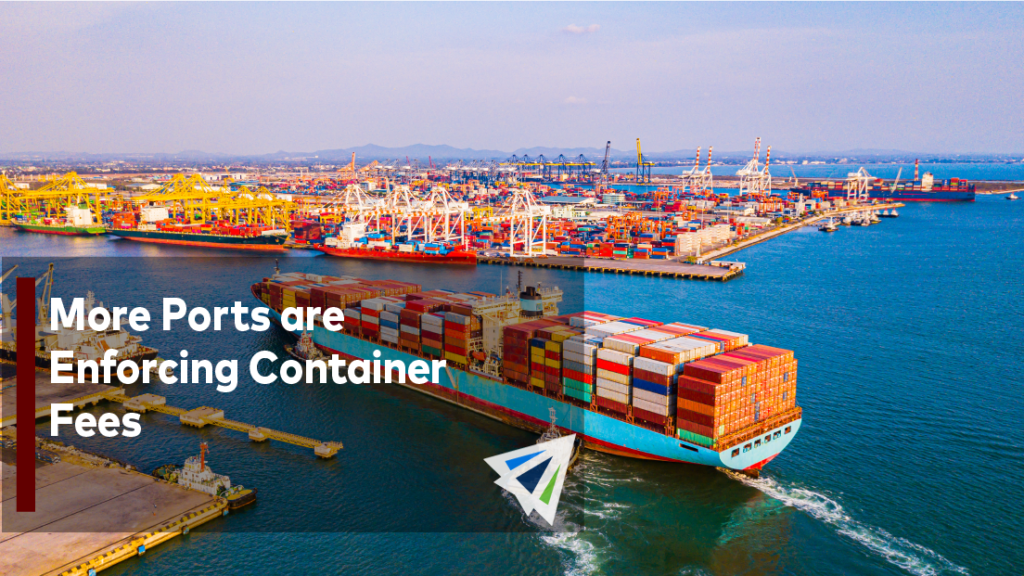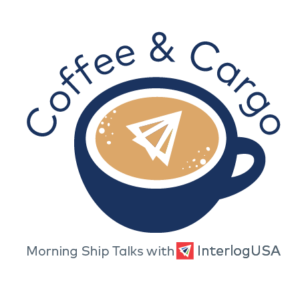Competitive Edge
November 10th, 2021
Stay Current with Interlog’s Weekly Newsletter:
Sign up for our next Coffee & Cargo webinar –> CLICK HERE
Ocean Freight Market Update
IMPORT: Europe –> North America:
Port congestion is increasing once again at Long Beach with over 102 vessels waiting to dock. Savannah ports are still very congested with over 22 vessels waiting to dock and alternate routes are recommended.
Rates: Expecting rates to stay consistent the rest of Q4.
Space: Very tight/critical
Capacity: Tight – inland ports are a bit better, however main ports still are having equipment shortages.
TIPS: With capacity tight, it is recommended to book on premium services. Recommend to book 5 weeks in advance with premium service. Rerouting options away from LGB & Savannah are highly recommended.
EXPORT: North America –> Asia:
Rates: Mid-November GRI expected, focused on reefers and some carriers are also implementing GRIs on dry containers.
Capacity: Steady for Standard Containers, space becoming more available.
TIPS: Looking into re-routing options may be helpful to avoid port congestion at LGB and OAK. Booking 4-6 weeks in advance is recommended to secure equipment and space.
IMPORT: Asia -> North America
Rates: Premium rates are steady, no GRI predicted as rates remain trending downwards (slowly). No clear path for how low rates may go or if this is a new ‘constant’. Demand is lower than previous weeks which aids in rates decreasing.
Space: Very tight with long docking wait time at LGB. While rates are decreasing, demand is staying at high consistent levels.
Equipment Availability: near-normal conditions, except limited 45HC availability.
TIPS: Savannah Port is critical for port congestion, avoid Savannah and LGB whenever possible until further notice. Work on booking 5 weeks in advance.
Did You Know?
The largest container ships are 400 meters long and can carry up to 20,000 containers!
Freight News
Two marine Terminals at the Port of Tacoma implementing surcharge on lingering containers
Even though cargo volumes are lower than before the pandemic, the Port of Tacoma still is experiencing congestion problems this year. Now, two marine Terminals at the Port of Tacoma are implementing surcharges on lingering containers that are slowing up operations and the delivery of cargo.
Husky Terminal & Stevedoring on Monday began a $315 charge for any containers that have dwelled on the docks for more than 15 days. Tacoma’s Washington United Terminal has also notified customers that a long-term dwell fee of $310 will be assessed on November 15th on any import units that have exceeded 15 calendar days on the terminal, according to Freightwaves.
These measures are different than the ones that took effect in Southern California this week. These measures are recognized by private terminal operators, NOT the port authorities. They are one-time fees that don’t escalate over time, and they are assessed against the importer not the ocean carriers.
Transpacific Container Rates have gone down since September, backlogs still an issue
From China to U.S. West Coast, rates on containers fell by half in October and have stayed down into the first week of November according to Shifl, a container data company. It is important to note that this doesn’t mean the congestion has cleared at L.A. and Long Beach, that still has a long way to go. However, this is some optimistic news for shippers from the sky-high freight rates that were happening this past summer.
Rates have also gone down around 30 percent from China to the U.S. East Coast, according to Maritime-Executive. Shabsie Levy, CEO and Founder of Shifl anticipates rates to trend consistently downward after Chinese New Year. “As we head into the traditionally quieter months, I’m confident we will see the rates on a stable downward trajectory.”
Congestion is still very much an issue with some experts predicting it will continue well into the first half of next year, and perhaps beyond.
Sign up for our
industry answers
Our team works to provide valuable, unique, and relevant content to assist you in finding solutions. Sign up now.

